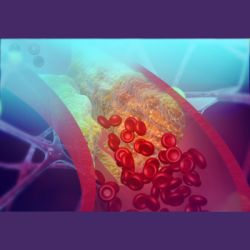A study published in the journal Oncotarget raises concerns that high levels of radiation may
increase one’s chance of developing Alzheimer’s disease.
Increasing numbers of people of all ages are exposed to ionising radiation from a variety of sources, e.g. airline travel, nuclear technologies, medical diagnostics and therapeutic radiology. The use of medical diagnostics and therapeutic radiology is very common with more than 62 million CT scans per year being carried out in the United States only. Approximately one third of the diagnostic scans are of the head region. Recent research has revealed that even relatively low radiation doses from CT scans may trigger molecular changes associated with cognitive dysfunction.
See Also : CT Dose Management: A Pan European Strategy
Dr Stefan J. Kempf, of the German Research Centre for Environmental Health GmbH, Neuherberg, Germany, does not see a cause for concern in cases where the patient is exposed once or a few times in a lifetime. His concern is, however, that modern people may be exposed to ionising radiation several times in their lifetime. Dr Kempf and colleagues focus on the consequences of accumulated doses of radiation in their recently published paper by elucidating molecular alterations in the hippocampus of mice. The hippocampus is responsible for learning and memory formation, and it is also known to be negatively affected in patients with Alzheimer’s disease.

The researchers induced molecular alterations in the hippocampus by two types of chronic low-dose-rate ionising radiation treatments. The mice were exposed to cumulative doses of 0.3 Gy or 6.0 Gy given at low dose rates of 1 mGy over 24 hours or 20 mGy over 24 hours for 300 days. The mice were exposed to a more than 1000-times smaller cumulative dose than what a patient gets from a single CT scan in the same time interval. Even then, the team observed alterations in the synapses within the hippocampus, which resembled those seen in Alzheimer’s disease. The current study shows that “several molecular targets induced by chronic low-dose-rate radiation overlap with those of Alzheimer´s pathology. It may suggest that ionising radiation functions as a contributing risk factor to this neurodegenerative disease.”
Source : Oncotarget
References:
Kempf SJ, Janik D, Barjaktarovic Z, Braga-Tanaka Iii I, Tanaka S, Neff F, Saran A, Larsen MR, Tapio S (2016) Chronic low-dose-rate ionising radiation affects the hippocampal phosphoproteome in the ApoE-/- Alzheimer's mouse model. Oncotarget; DOI: 10.18632/oncotarget.12376



























